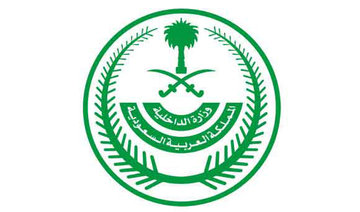JEDDAH: Since the news about the reopening of cinemas in Saudi Arabia broke on Monday, directors, producers and actors are rejoicing and cannot contain their excitement on the new chapter the Kingdom is going through. It is no secret that there is a small, up-and-coming film industry in the Kingdom. It just has not seen the light of day on the domestic front.
Many participate on an international level, but now things are turning around and many are hopeful and enthusiastic about what is coming up next.
Sara Taibah, a young Saudi actress who played Zaina in Nada Mojadidi’s “Zaina’s Cake,” which recently won the Gulf Cooperation Council’s (GCC) best short film award at Sharjah International Children’s Film Festival (SICFF), was excited with Monday’s news.
“This is our time now. The announcement is going to open doors for all potential actors and actresses that want to get into this field.”
“There’s a passion to it and I have had the privilege to experience it. Now others can too. Acting is another level of talent and there are so many talented Saudis here that want to show it,” she said.
As an actress, she said she would like directors and producers to make movies that are less intense and more toned down in the messages they convey.
“I hope that there’ll be more real social stories,” she said. “We all know of the major issues we have in the Kingdom, and I am not undermining them, but what about the real issues? How about going into people’s homes and telling the stories of us, to us, for us? That would be refreshing.”
Yasser Hammad, a writer and director and soon-to-be a graduate of the prestigious NY Film Academy in Los Angeles, said his dream is finally coming true.
“I’ve been wanting this since I was a child. People would always discourage me and tell me to keep dreaming. Well, the dream has finally come true.
“With the introduction of cinemas, an industry will surely happen. I’ve worked so hard to achieve my dream and my goal is to come back and throw myself into the game as soon as I can and be a part of the movement. I want people to view our films on the big screen and see how much we can give and appreciate the message we’re relaying on screen. Nothing is impossible now.”
He said with the growth of the industry, Saudi filmmakers would surely learn from the experiences of their neighbors like from their Egyptian counterparts.
He understands that it is going to be new and is still in its initial phases but the information is out there to organize and generate a system to make it easy for film casters, creative producers, cinematographers, etc. to do their job in the most efficient manner.
Nahar Alhamrani, creative director of “The Crew KSA Productions” and a major movie enthusiast, felt the news was a great milestone for the budding industry.
He told Arab News: “We don’t have the know-how of creating a full-fledged film but we’re learning along the way. It’s an experience for everyone taking part.
“Yesterday’s announcement was the best thing I’ve heard in a long time. I booked a ticket to Dubai this morning just to watch ‘Star Wars: The Last Jedi,’ that’s how dedicated I am... You could imagine how it’d be if we had cinemas in the Kingdom. People would flock to them and finally enjoy the experience.”
As a movie enthusiast, Alhamrani feels that cinemas bring people together, sharing one experience together, reacting to the same movie scene together. “You laugh, you cry and you show fear all together as a collective. That is an experience you can never have at home. The naysayers can complain all they want but they can never deny that they too watch movies on their TV screens, so why not give it a try on the big screen?”
It is also a fact that many, like Alhamrani, are giving it all they have got to produce the highest quality of work they can. As mentioned, they are still learning along the way, but it is something to look forward to in the future.
Upcoming filmmakers, actors determined to build a Saudi film industry
Upcoming filmmakers, actors determined to build a Saudi film industry

Jazan Festival highlights Fifa’s local heritage

JAZAN: The Fifa governorate pavilion at the Jazan Festival offers visitors a vivid glimpse into the region’s local heritage, the Saudi Press Agency reported.
Part of the “This is Jazan” event at Cultural Street until Feb. 15, the pavilion reflects the area’s cultural identity and rich traditions.
It showcases daily life through traditional clothing, handicrafts, coffee-making tools, and heritage artifacts, highlighting the diversity of local crafts.
The pavilion also features models of agricultural terraces and mountain villages, illustrating Fifa’s distinctive natural environment, the SPA reported.
It has drawn large crowds eager to learn about traditional attire and social customs, with staff providing explanations.
Live demonstrations turn visits into interactive experiences, deepening visitors’ connection to the region’s spirit.
Organizers said Fifa’s participation highlights its heritage and raises awareness of its value in the region’s cultural landscape.














